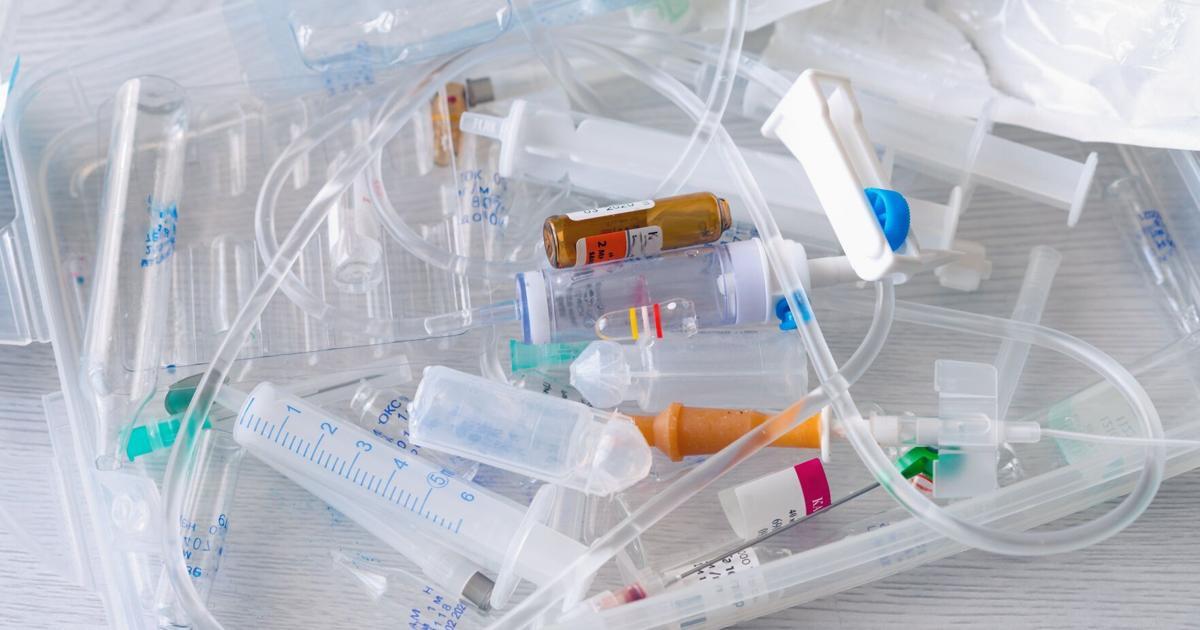"UK’s plastic bag levy leaving loopholes for online retailers, MPs warned"
#UK #UnitedKingdom #Plastic #Plastics
https://www.edie.net/uks-plastic-bag-levy-leaving-loopholes-for-online-retailers-mps-warned/
"UK’s plastic bag levy leaving loopholes for online retailers, MPs warned"
#UK #UnitedKingdom #Plastic #Plastics
https://www.edie.net/uks-plastic-bag-levy-leaving-loopholes-for-online-retailers-mps-warned/
"Bangladesh continues promotion of biodegradable bags amid battle against polythene"

Global #plastic consumption has quadrupled over the past 30 years, accounting for 3.4% of global greenhouse emissions and 350 million tonnes of waste, Avery Dennison has said, in a white paper examining ways to improve packaging circularity through value chains.

Surprising number of environmental pollutants found in hedgehogs https://phys.org/news/2025-04-environmental-pollutants-hedgehogs.html
Surprising number of environmental pollutants in hedgehogs https://www.sciencedaily.com/releases/2025/04/250401131532.htm
Researchers Find Lead, Plastic Additives and Other Contaminants in Hedgehogs https://www.ecowatch.com/hedgehogs-plastic-pollution-contaminants.html

Plant-Based Leather Alternative Contains Zero Plastics https://www.ecowatch.com/plant-based-leather-alternative.html

Microplastics pollution from glitter can disrupt marine biomineralization https://phys.org/news/2025-04-microplastics-pollution-glitter-disrupt-marine.html

This is a great graphic!
I note that the data is from 2017, so almost a decade old. But I really don't expect there has been much change in those two numbers 30% and 1%.
If there were a much bigger increase in #plastic recycling, I expect we would have seen a lot more fanfare.
And the whole political notion of recycling as a placebo to appease whining #environmentalists... I think that's true. I suspect people think more recycling is going on than there really is. #cdnpoli
Our #brains have 50% more #plastic in them than they did in 2016. Where does it go from here?
https://www.nationalgeographic.com/science/article/microplastic-human-brain-health

The #Commonwealth Sport King’s Baton Relay continues to bring much-needed attention to ongoing ocean #conservation efforts and interesting new solutions to #plastic waste. https://www.commonwealthsport.com/news/4241130/king-s-baton-relay-highlights-conservation-on-international-day-of-zero-waste
Eating from #plastic #takeout containers can increase #heartfailure risk – study
A new study suggests that frequent consumption of food from plastic takeout containers significantly increases the risk of congestive heart failure due to gut biome changes that trigger inflammation and circulatory damage.
https://www.theguardian.com/us-news/2025/feb/12/plastic-food-containers-heart-failure
"For the first time, #fracking operations in the US have been linked to ethane exports to Europe through major petrochemical companies and on to globally recognised brands.
#Plastic is a supply-driven issue, the campaigners emphasise.
Despite consumers being guilt tripped over their plastic use, it’s this influx of cheap ethane that spurs on the industry to produce more, she says, and to create new markets when some close."

Let’s end the age of plastic! https://www.greenpeace.org/international/act/lets-end-the-age-of-plastic/

The global movement envisioning a future free from plastic pollution. https://www.breakfreefromplastic.org

Re-use plastics, be artistic and creative, invent new use-cases for old plastics. Join us at our drop-in plastics workshop hosted by #wirralmakefest on April 12th @ 11am-1pm!
Details: https://wirralmakefest.org/free-drop-in-plastics-workshop/
Coca-Cola’s Plastic Waste Polluting Oceans Projected to Reach 1.3 Billion Pounds per Year by 2030: Oceana Report https://www.ecowatch.com/coca-cola-plastic-waste-oceans.html

Chewing Gum Could Release Microplastics Into Saliva, Study Finds https://www.ecowatch.com/chewing-gum-microplastics-saliva.html

Original news:
https://www.bbc.com/news/world-asia-56687585
And yes, in a world with PEF, any amount of PET is bad.
Covering PET in paper to trick consumers is inexcusable.

Canadian startups want to reduce plastic waste in healthcare. "Every time you drink water, or eat food, or simply breathe, micro and nanoplastics are likely entering your body. In fact, the average person consumes an estimated 50,000 pieces of microplastics every year. But what do these plastics — specifically the ones in medical devices and products — do when they get into our lungs or colons? The short answer is: We don't fully know." #health #environment #plastic https://www.thestar.com/business/mars/can-health-care-s-plastic-habit-be-cured/article_c4332982-f020-44a1-8fd3-85bcb7b2642a.html

#Today How to reduce the micro-plastics in your drinking water.
1) Boil the water
2) Filter it
https://e360.yale.edu/digest/microplastics-tap-water-boiling
A good home distiller performs both steps and produces pure water.
